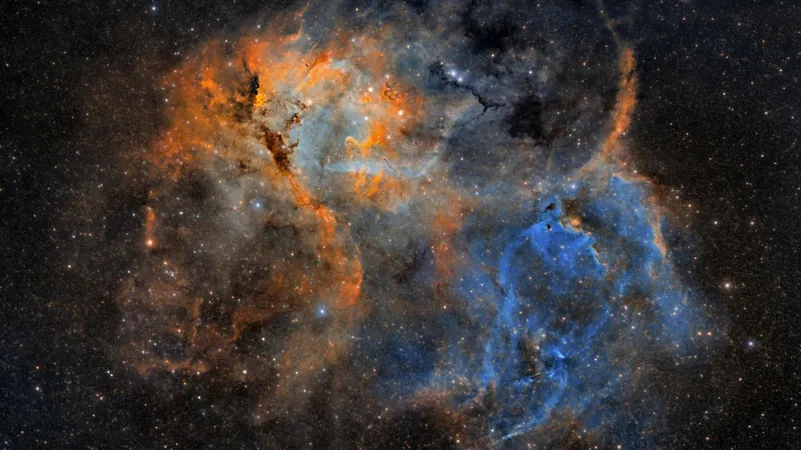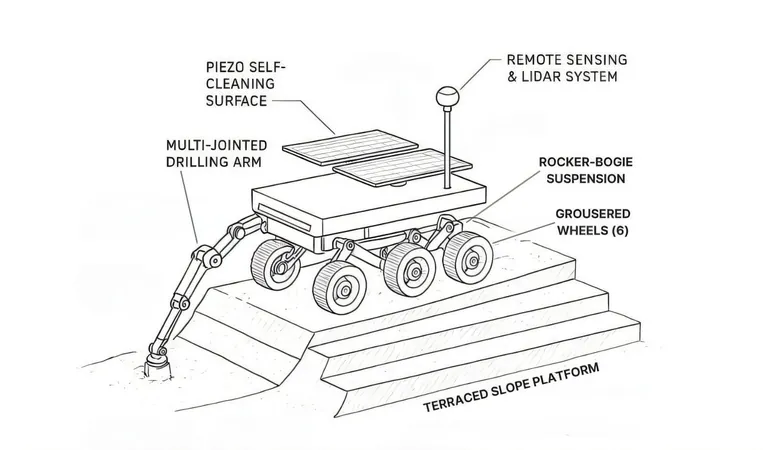
What Does Space Really Smell Like? Discover the Surprising Scents Scientists Have Uncovered!
2025-09-14
Author: Sophie
Space: A Vacuum of Scent?
Imagine stepping into the cosmos, where the air is eerily absent, and yet astronauts have reported unique fragrances upon their return from spacewalks. How can this be? While space itself lacks any air to carry the scent as we know it, intriguing olfactory experiences await our brave explorers!
Astronaut Aromas: What Do They Smell?
After their missions, astronauts often describe a distinctive odor reminiscent of burnt steak, hot metal, or even welding fumes. NASA astronaut Don Pettit likened it to 'sweet-smelling welding fumes,' evoking memories from his past job. Other astronauts have connected these scents to burnt cookies and spent gunpowder. During the Apollo missions, the moon dust even infused lunar modules with a gunpowder aroma, a strong olfactory memory that astronauts like Harrison "Jack" Schmitt and Charles Duke vividly recall.
The Chemistry Behind Cosmic Scents
So, what causes these peculiar smells? It's theorized that atomic oxygen clings to spacesuit materials in low Earth orbit. Upon repressurization, these compounds react with cabin air, creating the metallic scents astronauts describe. Regarding lunar dust, meteoroid impacts may create reactive bonds that also produce that familiar gunpowder aroma, which unfortunately fades with exposure to oxygen and moisture.
A Whiff of Comets: The Rosetta Mission's Findings
Thanks to the European Space Agency's Rosetta project, scientists explored the scent profile of comet 67P/Churyumov-Gerasimenko. Using the Philae probe, researchers discovered a mix of odors, including rotten eggs (hydrogen sulfide), ammonia, and even formaldehyde. Despite the complexity of these scents, water vapor dominates the comet’s coma, reminding us of the primeval components of our solar system.
The Potential Scent of Mars
Although we can’t directly breathe the Martian atmosphere, rovers have detected traces of sulfur which might give Mars a gaseous sulfur scent mixed with a chalky sweetness. Despite initial theories, recent studies indicate that sulfur-bearing gases might be scarce, suggesting any sulfuric aroma could be localized and faint.
Titan: The Smelly Moon of Saturn
Saturn's moon Titan offers another aromatic adventure. Rich in hydrocarbons like methane and ethane, this moon could hypothetically yield a scent similar to gasoline, given its chemical makeup. Evidence from the Cassini-Huygens mission reveals a complex liquid cycle resembling Earth’s, albeit composed of different elements.
The Fragrant Heart of the Milky Way
Venture deep into the Milky Way's core, and you encounter Sagittarius B2, a molecular cloud bursting with organic compounds. Among these is ethyl formate, which contributes to a raspberry-like scent and carries hints of rum. Yet, this delightful comparison is misleading; the cloud's diffuse nature makes any scent virtually undetectable.
The Intriguing Science of Space Smells.
What we’ve learned is that the cosmos is full of olfactory mysteries that extend our understanding of planetary science and astrochemistry. Each unique fragrance acts as a portal, revealing secrets about the composition and evolution of celestial bodies. The scents of space aren't mere curiosities—they're invaluable clues about the universe around us!









 Brasil (PT)
Brasil (PT)
 Canada (EN)
Canada (EN)
 Chile (ES)
Chile (ES)
 Česko (CS)
Česko (CS)
 대한민국 (KO)
대한민국 (KO)
 España (ES)
España (ES)
 France (FR)
France (FR)
 Hong Kong (EN)
Hong Kong (EN)
 Italia (IT)
Italia (IT)
 日本 (JA)
日本 (JA)
 Magyarország (HU)
Magyarország (HU)
 Norge (NO)
Norge (NO)
 Polska (PL)
Polska (PL)
 Schweiz (DE)
Schweiz (DE)
 Singapore (EN)
Singapore (EN)
 Sverige (SV)
Sverige (SV)
 Suomi (FI)
Suomi (FI)
 Türkiye (TR)
Türkiye (TR)
 الإمارات العربية المتحدة (AR)
الإمارات العربية المتحدة (AR)